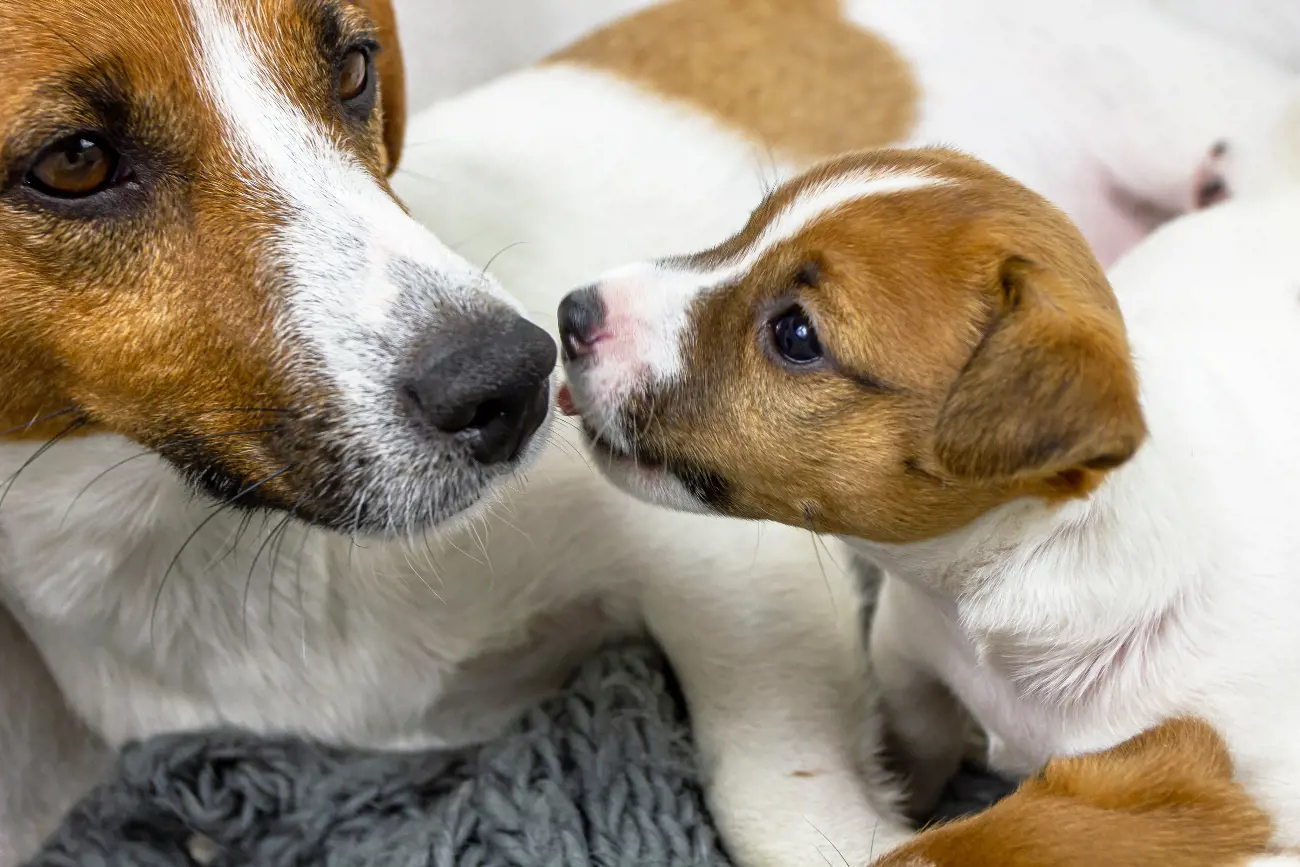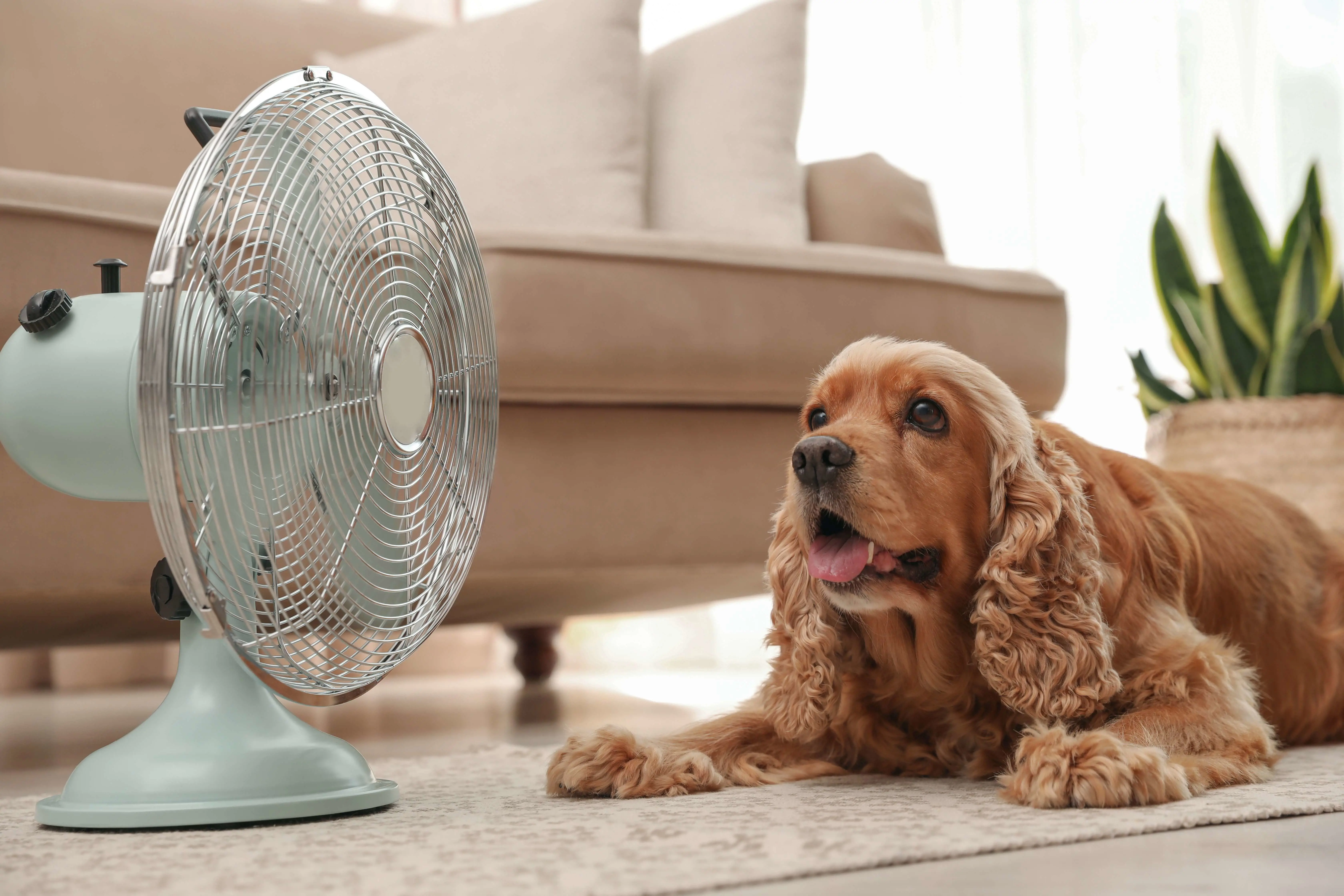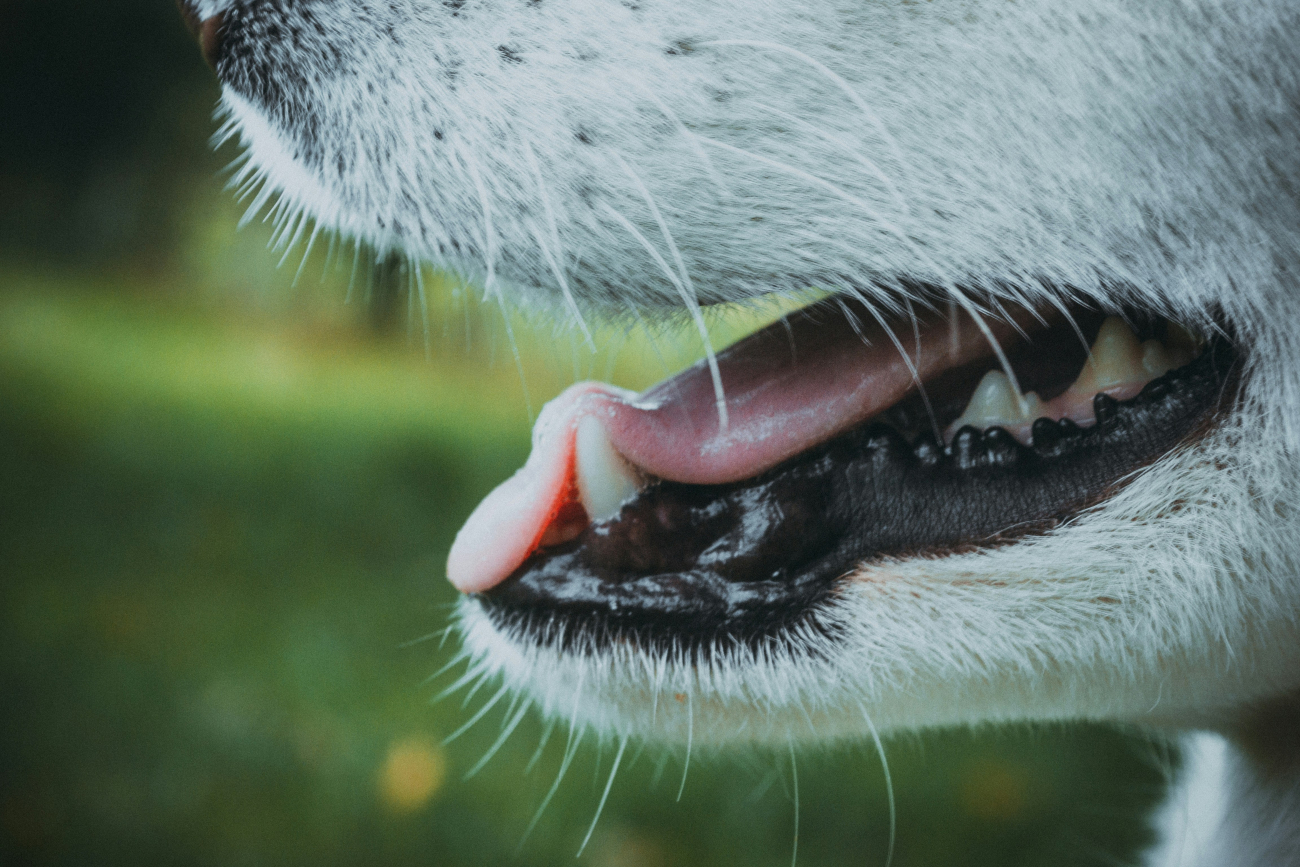Can cats catch a cold?
25th April, 2023
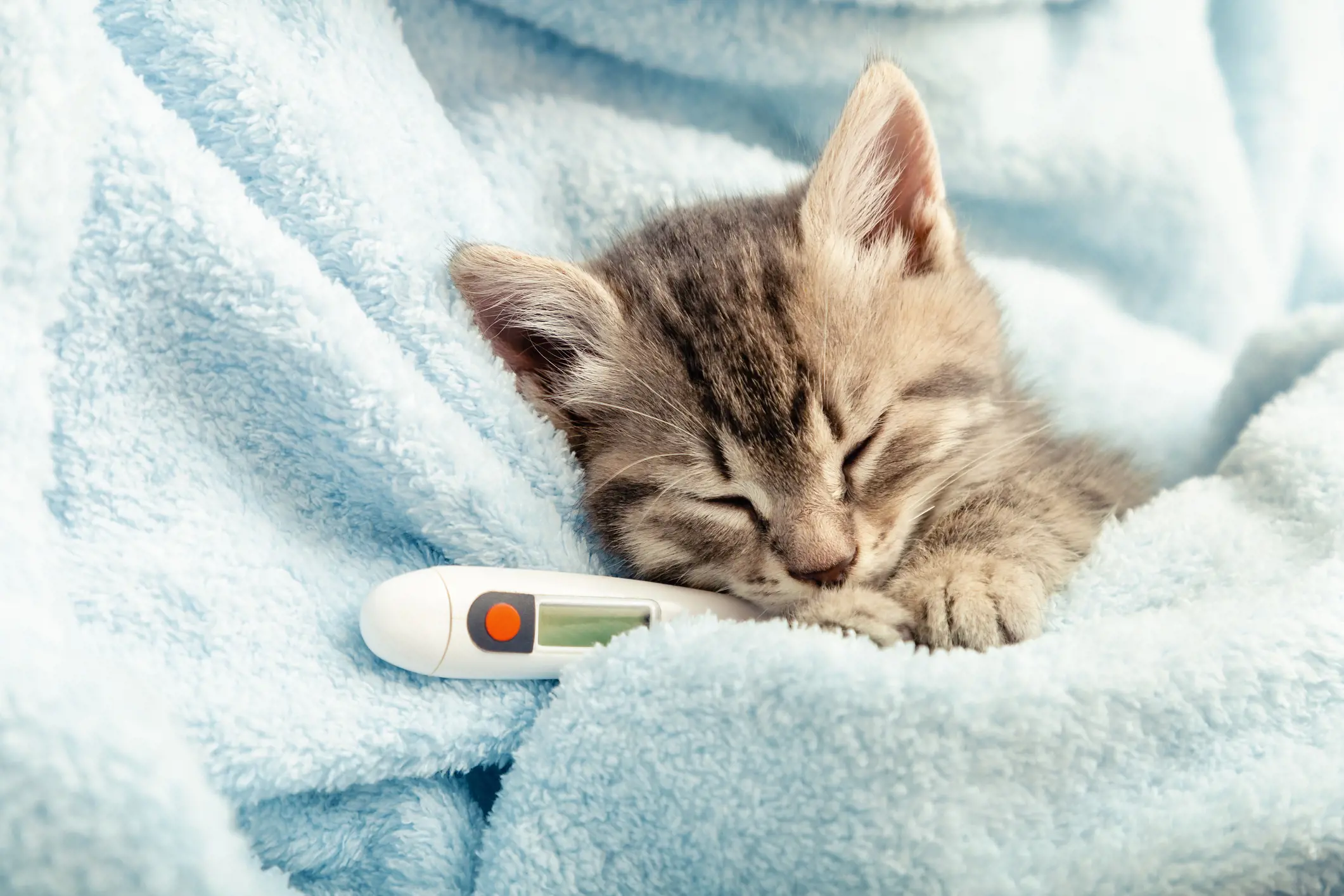
It's a common question that many pet parents have: can cats get colds? The answer is yes, cats can absolutely get colds. As their owners, it's important to understand what a feline cold is, what causes it, and how to treat it.
In this blog post, we'll cover all of that and more so you can be better informed about how to help your cat feel better as soon as possible.
How do I know if my cat has a cold?
The viruses that lead to your furry friend getting a cold can spread easily from cat to cat, so if one cat in your home has a cold, it’s likely that all of them will eventually get it.
The signs of a cold in cats are similar to those in humans. Your cat may have a runny nose, sneezing, coughing and watery eyes. They may be lethargic, have a decreased appetite, and may even develop a fever. Your cat may also experience a decrease in their sense of smell due to the cold, causing them to become less interested in food.
In addition to taking your cat to the vet, you can also take steps to help your cat feel better. Make sure your cat’s environment is warm and comfortable, and keep them away from other cats if possible.
You can also provide them with clean, dry bedding and plenty of fresh water. Additionally, steam from a hot shower can help clear your cat’s airways, which can help them to breathe more easily.
There are steps you can take to help ease your cat’s symptoms. Be sure to take your cat to the vet if you think they may have a cold, and follow their instructions for treating your cat at home.
Diagnosing a feline cold
If you suspect that your cat has a cold, it's important to take them to the vet for an examination.
Your vet will be able to do a physical examination and take a sample of your cat's nasal discharge for testing. This will help them determine if your cat does indeed have a cold and what kind of virus is causing it.
Symptoms of a feline cold
Cats, like humans, can be affected by the common cold.
Symptoms of a feline cold can include:
- Runny nose
- Sneezing
- Coughing
- Watery eyes
- Nasal congestion
- Decreased appetite
A feline cold may also cause a fever, and in extreme cases, can lead to pneumonia.
The most common symptom of a feline cold is sneezing. Sneezing is the body’s way of trying to expel any irritants that may be present in the respiratory tract.
If your cat is sneezing more than normal, it may be a sign that they have a cold. In addition to sneezing, a feline cold can cause a runny nose. This runny nose may be either clear or yellowish in colour.
If your cat’s cold is accompanied by watery eyes, it is important to have them examined by a vet.
Watery eyes can indicate an underlying infection or disorder, such as conjunctivitis. Nasal congestion is also a common symptom of a feline cold.
Your cat may have difficulty breathing through their nose, and their breathing may be noisy.
A cold can also cause a decrease in appetite. If your cat is not eating, it is important to take them to the vet as soon as possible.
A decrease in appetite can be caused by other illnesses as well as a feline cold, so it’s important to get a professional opinion. Lastly, a fever is a sign of a more serious infection. If your cat has a fever, it is important to seek medical attention right away.
Overall, the symptoms of a feline cold are quite similar to the symptoms of a human cold. If your cat is showing any of these symptoms, it’s important that you take them to the vet for a proper diagnosis and treatment.
Symptoms of a feline cold can range from mild to severe, so it’s important to pay attention to your cat’s behaviour and take them to the vet if anything seems amiss.
Treating a feline cold
Cats are known for their remarkable resilience when it comes to taking care of themselves, but even cats can suffer from a feline cold. It’s important to know how to treat a feline cold if you have a pet cat.
The best way to treat a feline cold is to take your cat to the vet to get a diagnosis and treatment. The vet will be able to determine what type of infection your cat has, and then provide the proper medication.
In some cases, antibiotics may be needed to treat the infection, although in most cases, the treatment will involve supportive care such as providing plenty of fluids and keeping the cat warm.
It’s also important to keep your cat away from other cats while it is sick to prevent the spread of the infection. If possible, confine your cat to a single room with its own bedding, toys, and litter box.
Make sure to provide plenty of fresh water and food. If your cat has a fever, you can also give it a cool bath, or place a cool, damp towel on its fur. This will help to reduce the fever and make your cat more comfortable.
If your cat is still having difficulty breathing, or if they are having trouble keeping their food down, then you should bring them to the vet for further treatment.
The vet may recommend additional medications, such as bronchodilators or decongestants, to help with the symptoms of the cold. They may also suggest a course of antibiotics if there is an underlying bacterial infection.
If you are able to diagnose and treat your cat’s cold on your own, it’s important to monitor their condition closely and take appropriate action if necessary. If the symptoms persist, or if your cat’s condition worsens, then you should take them to the vet for further treatment.
How to treat a feline cold requires patience and attention, but with the right care, your cat should be able to recover quickly and fully.
Causes of a feline cold
Feline colds are usually caused by a virus, such as the feline herpes virus or the feline calicivirus.
These viruses are highly contagious and can be spread through contact with other cats, as well as through contaminated objects such as food and water bowls, toys, and bedding.
Risk factors for a feline cold
Cats of any age can get a cold, but kittens are particularly vulnerable.
Young cats don't have fully developed immune systems, so they're more susceptible to viruses.
Additionally, cats that are stressed, have a weakened immune system due to illness, or are living in an unclean environment are more likely to get a cold.
If your cat is currently living with pre-existing health conditions, it may be in your best interest to have them seen by a vet to help prevent the cold from getting worse and to alleviate any symptoms that your cat is suffering with.
Tips for preventing a feline cold
The best way to prevent a feline cold is to keep your cat away from other cats that may be carrying the virus.
Additionally, make sure to keep your cat's environment clean and stress-free.
Regular vet visits can also help ensure that your cat is healthy and that any underlying conditions are diagnosed and treated quickly.
How to treat a cat's blocked nose
If your cat has a blocked nose, your vet may prescribe a decongestant to help them breathe more easily.
Additionally, you can use a humidifier in the room where your cat is staying to help keep their nasal passages moist and clear.
You should also make sure that your cat is well hydrated by providing them with plenty of fresh, clean water.
Can cats catch colds from humans?
No, cats can't catch colds from humans, but it's still important to practice good hygiene and wash your hands after handling your cat or any items that they use.
Human colds are received from coming into contact with a virus that will typically only effect humans. However, there have been incidents of other infections and diseases being passed on from humans to animals so it is always important to practice good hygiene when handling your cat at all times.
Especially if you're feeling a bit under the weather!
Additionally, keep your cat away from any cats that are suffering from a cold and make sure to take them to the vet for a check-up if they develop any cold-like symptoms.
What can I give my cat for a cold?
If your cat is suffering from a cold, it's important to take them to the vet for proper diagnosis and treatment.
Your vet may prescribe antibiotics, steroids, or fluids to help them fight the illness.
Additionally, you can try to keep your cat warm, provide them with moist food and make sure they have plenty of water to drink.
Cats deal with colds similarly to how humans deal with them, keep your cat fully hydrated and allow for rest and recovery.
If you’re worried that your cat’s symptoms are worsening or your cat has pre-existing medical conditions, you may want to visit a vet in order to receive proper treatment and diagnosis.
Find cat insurance for your sick feline
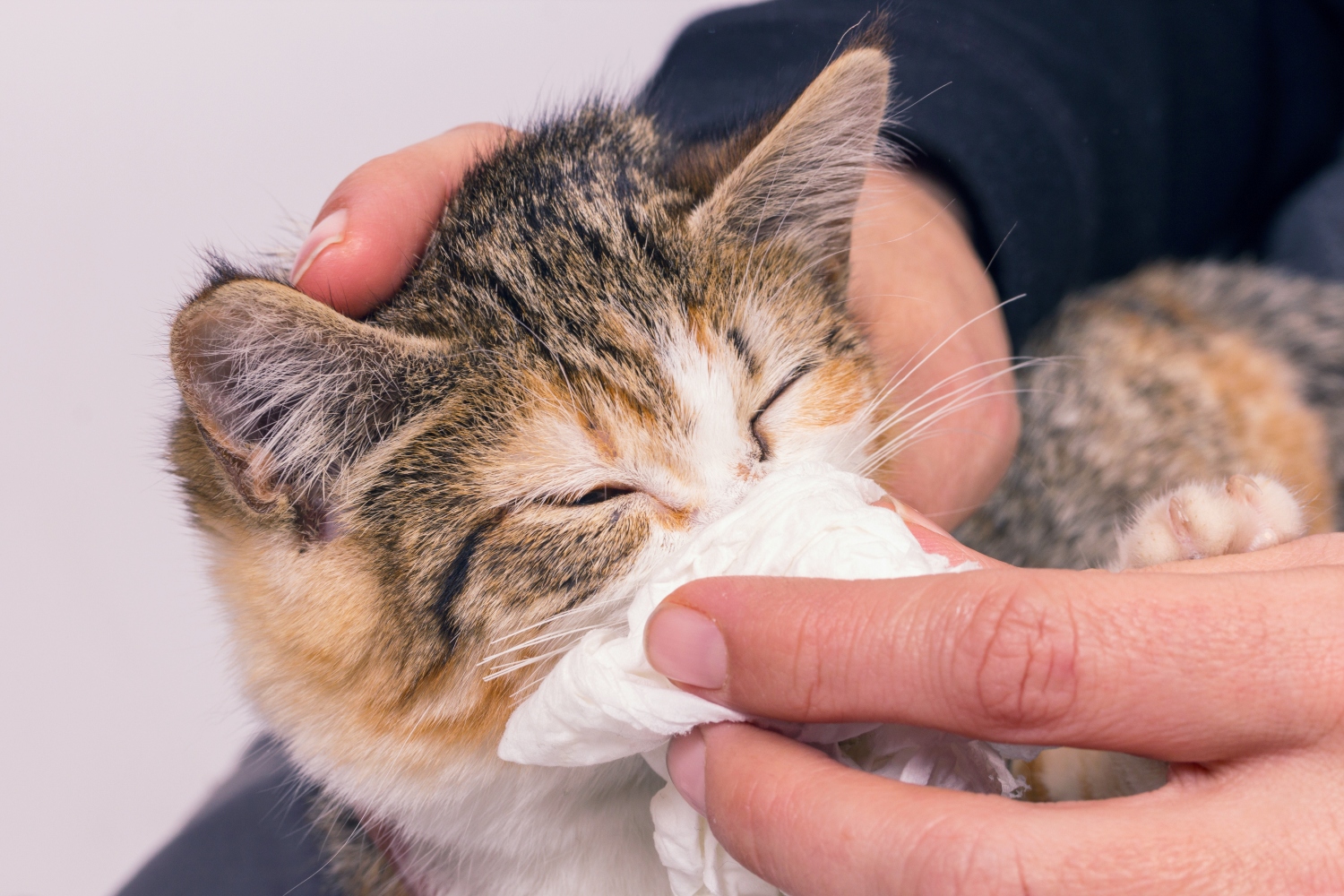
Cats can absolutely get colds, just like people.
It's important to be aware of the symptoms of a feline cold and to take steps to prevent and treat it as soon as possible.
If you think your cat has a cold, take them to the vet for an examination and treatment. Additionally, make sure to keep your cat away from other cats that may be carrying the virus and practice good hygiene to reduce the chances of your cat getting a cold in the first place.
A lifetime insurance plan means your four-legged friend gets treatment for accidents and illnesses when they need it most.
Cat health insurance with Purely Pets comes with many benefits:
- 15 levels of lifetime cover up to £15,000
- Easy-to-manage policies through the online portal
- Access to the 24/7 vet video consultation service
- Protection from as young as 8 weeks old and no upper age limit
Contact Purely Pets for a quote today.
Helpful Pages
Recent Posts

Are Cocker Spaniels easy to train?
21/06/24Pet Insurance Quote
- 98% claims paid *
- Claims paid directly to vets
- 24/7 vet video consultations
- Interest free monthly payments

